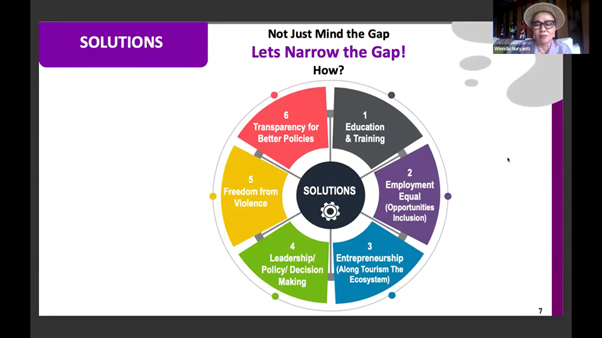Coinciding with the celebration of Kartini Day on Monday, April 21, 2025, the Institute Tourism International held a webinar titled Top Indonesian Women in Tourism Virtual Summit with Top Expert 2025, featuring remarkable women who are experts in the field of tourism. On this occasion, Professor Ir. Wiendu Nuryanti, M.Arch., Ph.D., a professor in the Doctoral Program of Architecture at DTAP FT UGM, participated as one of the speakers and presented a talk entitled Is Tourism A Driver of Gender Equality?
Prof. Wiendu, who also served as the Deputy Minister of Education and Culture of the Republic of Indonesia (2011–2014), highlighted the crucial role of women in tourism. On the smallest scale, such as within families, women play a significant role in making key travel decisions—such as the choice of destinations, length of travel, accommodation, and other aspects. Statistically, women—both young and old—make 80% of tourism-related decisions. Compared to men, women are also more likely to travel internationally and make repeat visits.
Women are not only tourists but are also increasingly working in the tourism industry in Indonesia, with around 80% employed in the informal sector. However, women earn approximately 20% less than their male counterparts. This wage gap is largely due to the fact that although the number of female workers is high, fewer women hold managerial positions or act as decision-makers (such as company owners). To address this issue, Prof. Wiendu proposed six key points: education and training; equal employment opportunities; entrepreneurship; leadership, policy, and decision-making; freedom from violence; and policy transparency for better outcomes.
The significant increase in women’s roles in the tourism sector, as outlined by Prof. Wiendu, can support the achievement of the Sustainable Development Goals (SDGs), particularly Gender Equality (SDG 5) and Decent Work and Economic Growth (SDG 8). When women are given fair access in this sector, they not only improve the welfare of their families and communities, but also help foster a more equitable and sustainable tourism industry.

